I sold all my possessions to move to Europe and become a digital nomad. Here are the 5 most surprising things I've learned.
Kimanzi Constable

- My wife and I sold all our possessions to become full-time location-independent travelers.
- Since the start of the year, we've been based in Europe while working remotely.
With our children grown and raising kids of their own, my wife and I decided to sell everything and live as digital nomads.
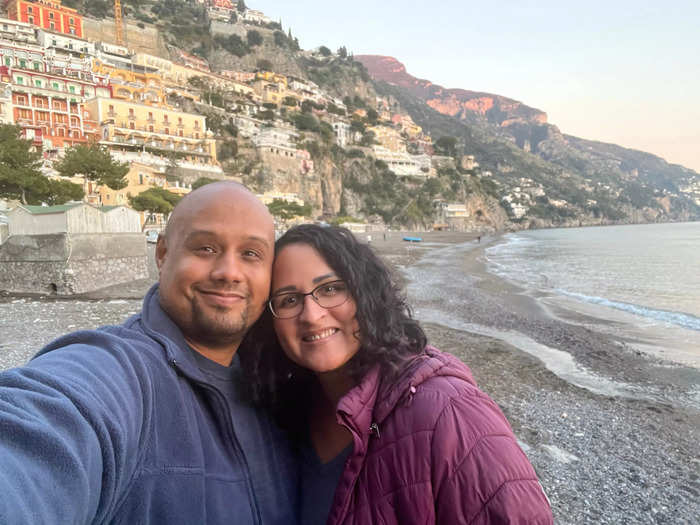
In 2021, my wife and I found ourselves as empty nesters. When we thought about how we wanted to spend our golden years, we knew it should involve a lot of travel.
We made a huge life decision to sell everything we owned — house, car, material possessions — and left our home in Florida to go all-in on a full-time travel lifestyle, living abroad and working remotely.
We started off 2022 based in Europe and since becoming full-time travelers, we've traveled to Puerto Rico, Italy, Portugal, and England. We have plans to travel to France, Colombia, the Netherlands, and about five other countries.
It's a dream come true, but also one that came with some major surprises and culture shocks we never expected.
Adjusting to a life of full-time travel was harder than I thought it would be
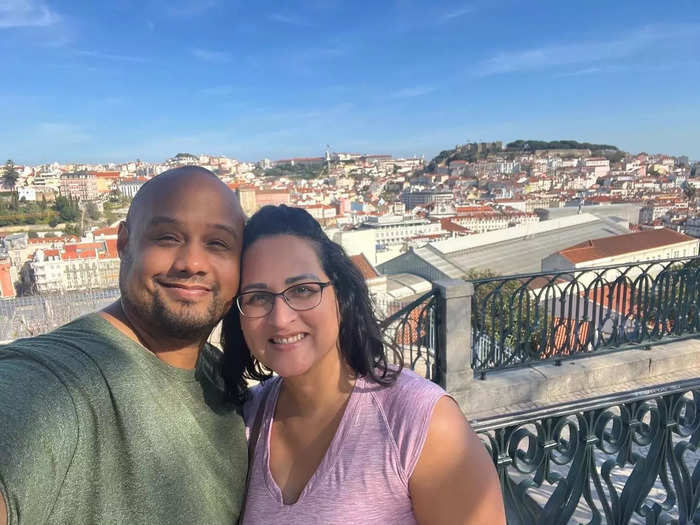
The first few weeks were rough. It was a difficult mental adjustment to not have a home and realize everything we owned fit in three suitcases. It was difficult being away from our children and grandchildren for an extended period of time.
When we started our travels in Puerto Rico, we were not productive. We needed time to adjust, rest and recover from years of going hard as a parent and entrepreneurs, and had to give ourselves permission to live an unconventional life.
We started to find our groove by the third week of that first trip, and were determined to live our best lives as we made our way to Europe. We continued building our remote digital content business and utilized regular Zoom chats with family, which helped, but it was a transitional period that was harder than I thought it would be.
Traveling full-time isn't as glamorous as it sounds.
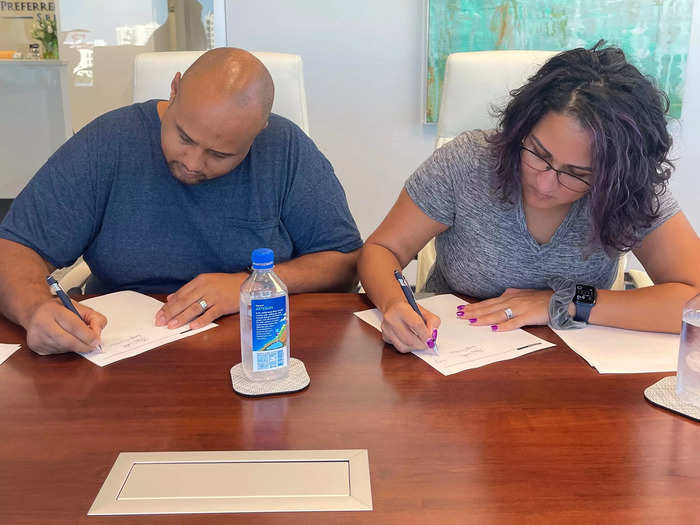
My wife and I are remote workers who can operate our digital content business from anywhere.
Right now, we're in Lisbon, Portugal, and in the coming months will travel to Italy's Amalfi Coast, London, and Nice, France.
It's exciting, yes, but not glamorous — because we're not on vacation. Rather than sunbathe on a beach, we live like locals, working, running errands, and maintaining daily responsibilities. We keep a schedule of working four days a week and exploring on the other three days. It helps us pay the bills while also seeing the sights.
So while all the jet-setting might seem extravagant, at most times you can find us hunkered down on computers and working in modest Airbnb apartments or hotels rather than lavish resorts. We skip expensive, fancy restaurants and instead shop and cook at home.
We went in knowing this would be our lifestyle, but it's always surprising to family, friends, and sometimes, ourselves.
I think the food in Europe tastes better than what I'm used to eating in the US.
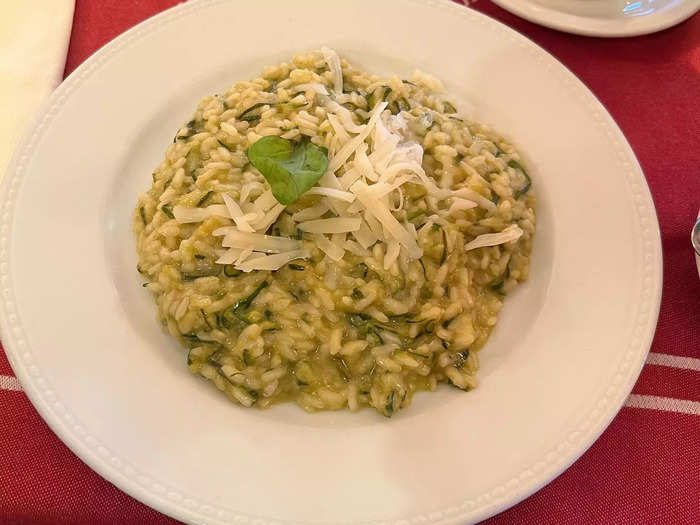
In my opinion, as an American that's eaten in the US for most of my life, the food in Europe tastes fresher and cleaner.
Pasta at a chain restaurant at home would typically make me feel bloated with oversized portions, but I did not feel that way in Rome because the ingredients were few and simple.
The food in Portugal felt equally fresh, and the meat, cheese, bread, and eggs I eat don't leave me feeling like I need a nap.
I've read a lot of research on the differences between food in the US and Europe and I think it's because the European Union banned certain chemicals, additives, and pesticides that are used in the US.
As the cook in the family, I've noticed that produce does not last as long, which I attribute to these rules. I try to only buy what I need at a given time so nothing spoils and goes to waste.
My body has thanked me, as I've lost over 20 pounds.
Living in Europe made it easier for me to lead an active lifestyle.
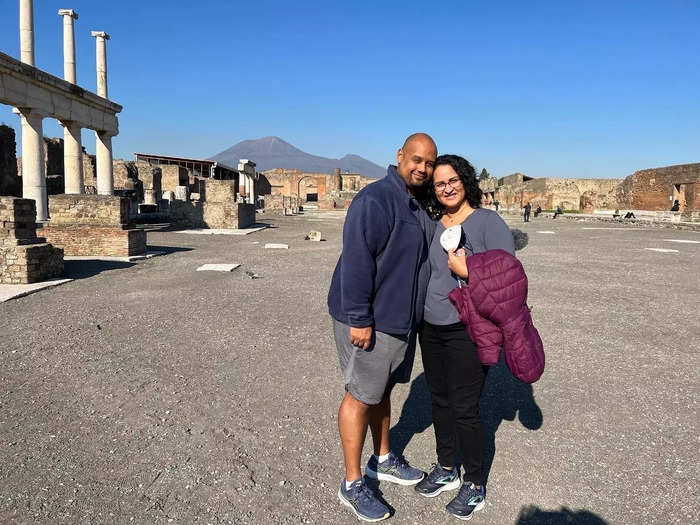
I grew up in Milwaukee, Wisconsin, where I was always reliant on a car.
Since moving abroad, I walk almost everywhere. In Rome, I walked from my Airbnb near the Vatican to the city center in about 30 minutes, but it never felt long because it was so pedestrian-friendly.
When I have to cover a distance that is too far to walk, I skip Ubers in favor of public transportation. In my experience, many European cities are much easier to navigate in this way than in the US, thanks to highly accessible, affordable public transportation that includes an extensive network of trains, buses, trams.
While these transportation options exist in the United States, they're not as common in smaller cities such as Bradenton and Lakewood Ranch, Florida, where we lived for two years before moving abroad.
I feel more relaxed and less rushed in Europe, which I attribute to an unspoken theme of living well.
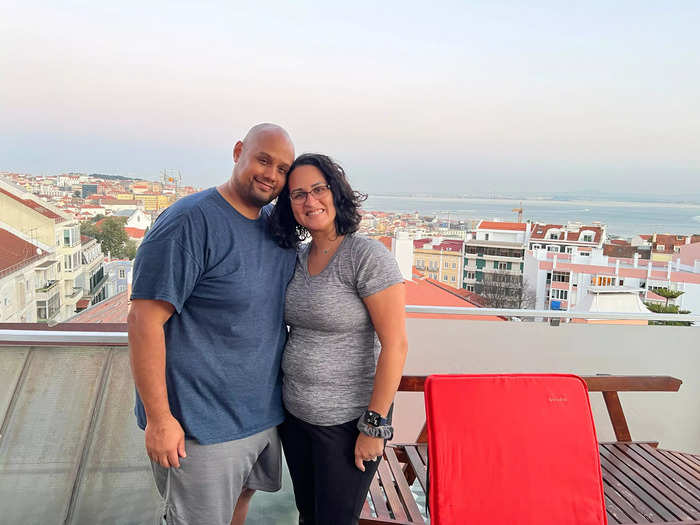
In US cities like Milwaukee, New York City, and Tampa, I often felt rushed and worked long hours.
In Europe, I haven't experienced that. I feel more relaxed in grocery stores, shopping malls, and everyday life situations, which I attribute to living somewhere that emphasizes living well with a healthy balance between work, family, and responsibilities.
Some European countries have tested and adopted a four-day workweek, and our Airbnb hosts in Rome and Lisbon told us that rest is a big priority and that work does not define their identity.
The slower pace of life I've adopted has helped me be more intentional with my time, and I've found it easier to structure my days and tasks effectively. In doing so, I can be the best version of myself, which is my definition of living well. I'm not sure where the future will take us, but for the time being, living like this means I have no desire to return to traditional life in the US anytime soon.
READ MORE ARTICLES ON
Popular Right Now
Popular Keywords
Advertisement